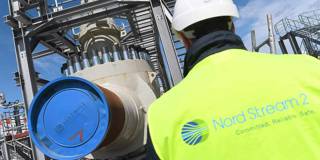Surging electricity prices in Europe have offered a preview of what awaits developed economies as they usher in new energy systems in pursuit of net-zero greenhouse-gas emissions. Short-term disruptions are not yet avoidable, but they can be mitigated with deft management.
BARCELONA – The European Green Deal aims to reduce Europe’s greenhouse-gas emissions to net zero by 2050, not least through decarbonization of the energy sector. But while Europe wants to be a global leader in the fight against climate change, the question is whether it can achieve its goal and at what cost. The task is formidable, and the obstacles are daunting.

BARCELONA – The European Green Deal aims to reduce Europe’s greenhouse-gas emissions to net zero by 2050, not least through decarbonization of the energy sector. But while Europe wants to be a global leader in the fight against climate change, the question is whether it can achieve its goal and at what cost. The task is formidable, and the obstacles are daunting.